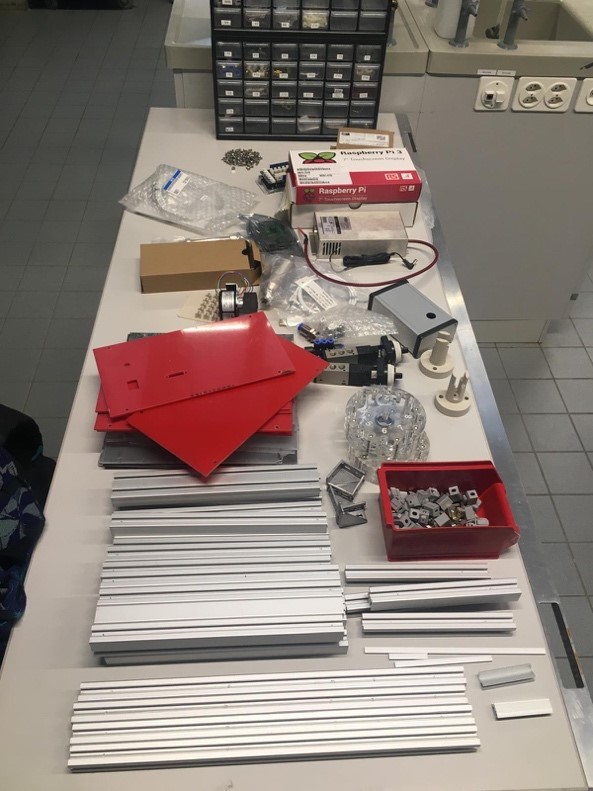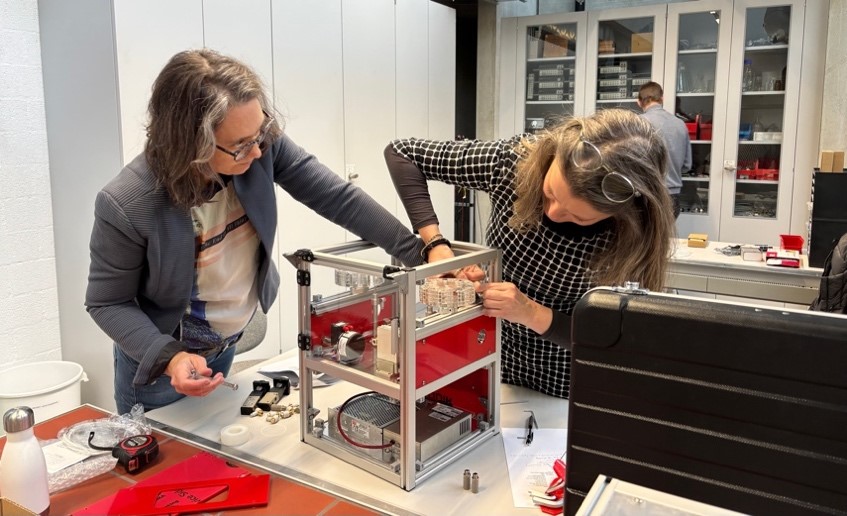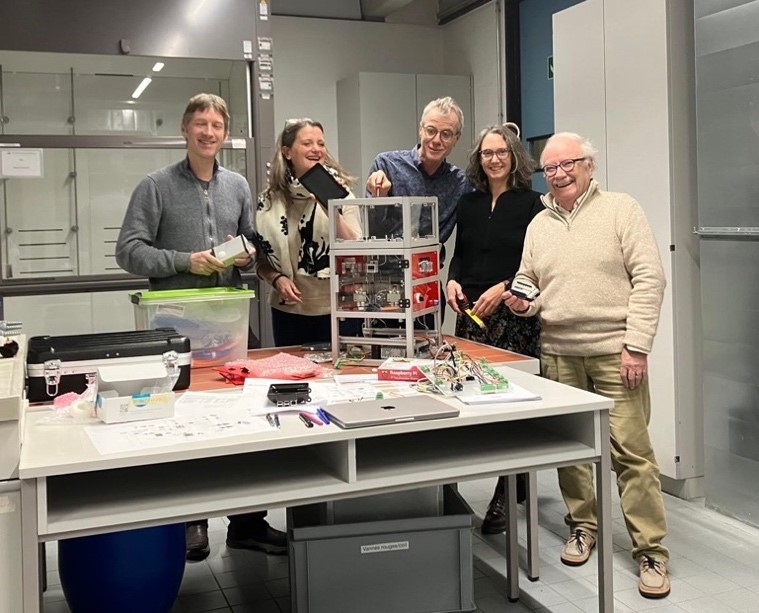Home / News / Training Internship for Two University Professors from UGA (France) and ULB (Belgium)
Training Internship for Two University Professors from UGA (France) and ULB (Belgium)
It is with great pleasure that Pharmelp and the chemistry department welcomed
Professor Florence Souard
Faculty of Pharmacy
Department of Interdisciplinary Teaching
in Pharmaceutical Sciences
Université libre de Bruxelles, ULB
Belgium
and
Cécile Vanhaverbeke, "Lecturer-Researcher"
Faculty of Pharmacy
Université Grenoble Alpes, UGA
France
at the School of Engineering and Architecture of Fribourg (HEIA-FR).
Florence and Cécile first learned about Pharmelp at the International Conference of Deans of Pharmacy Faculties in French-speaking Countries (CIDPHARMEF) held at the Faculty of Medicine and Pharmacy at Mohammed V University in Souissi, Rabat (Morroco) in May 2024, where they listened to the presentation given by our Vice-President, Serge Rudaz.
Then, a few months later, we all met again at the PBA 2024 symposium in Geneva to finalize our collaboration.
Florence and Cécile volunteered as beta-testers to set up the low-cost, in-house capillary electrophoresis system, according to the open-source information published by Pharmelp. To do this, they spent a few days in the HEIA laboratories in Fribourg, with the support of the designer of the ECB 4.0, Professor Olivier Vorlet.
Extract from an email:
“We are not engineers, however we enjoy tinkering with our spectrometers. We love puzzles (!) and we would be delighted to participate in your project between Fribourg and Geneva at our scale.
In this project, we propose to set up your capillary electrophoresis and test the device not on falsified medicines, but with medicinal plant-based products of varying quality. We propose to conduct a proof of concept using harpagosides1.”
1Harpagosides are natural molecules in the iridoid class that have demonstrated significant anti-inflammatory activities (comparable to those of phenylbutazone and indomethacin). They are present in numerous plant matrices, typically of poor quality (doi: 10.3390/ph14080726). Historically, harpagophytum/devil’s claw has been widely used and over-exploited for medicinal products targeting rheumatological indications. In Europe, in recent years, products made from knotty scrophularia have been developed for the same indications, offering a more eco-responsible use of the plant. This plant contains these molecules indeed.

ECB 4.0 kit parts

Cécile and Florence working hard

A nearly completed device within 3 days
This experience was beneficial for everyone. Now we know that the ECB can be assembled from open-source information in three days. Next we still need to perform the tests, validations and other checks required to ensure its proper functioning.
This collaboration should allow us to put ourselves in the context of the quality control of phytomedicines, particularly in Africa for medicinal plants as well as in Europe for marketed finished products.
Florence specifically works on a project with Guinea Conakry to produce MTA (Improved Traditional Medicine) from two Guinean plants with promising perspectives for type 2 diabetes.
Thank you, Cécile and Florence.
